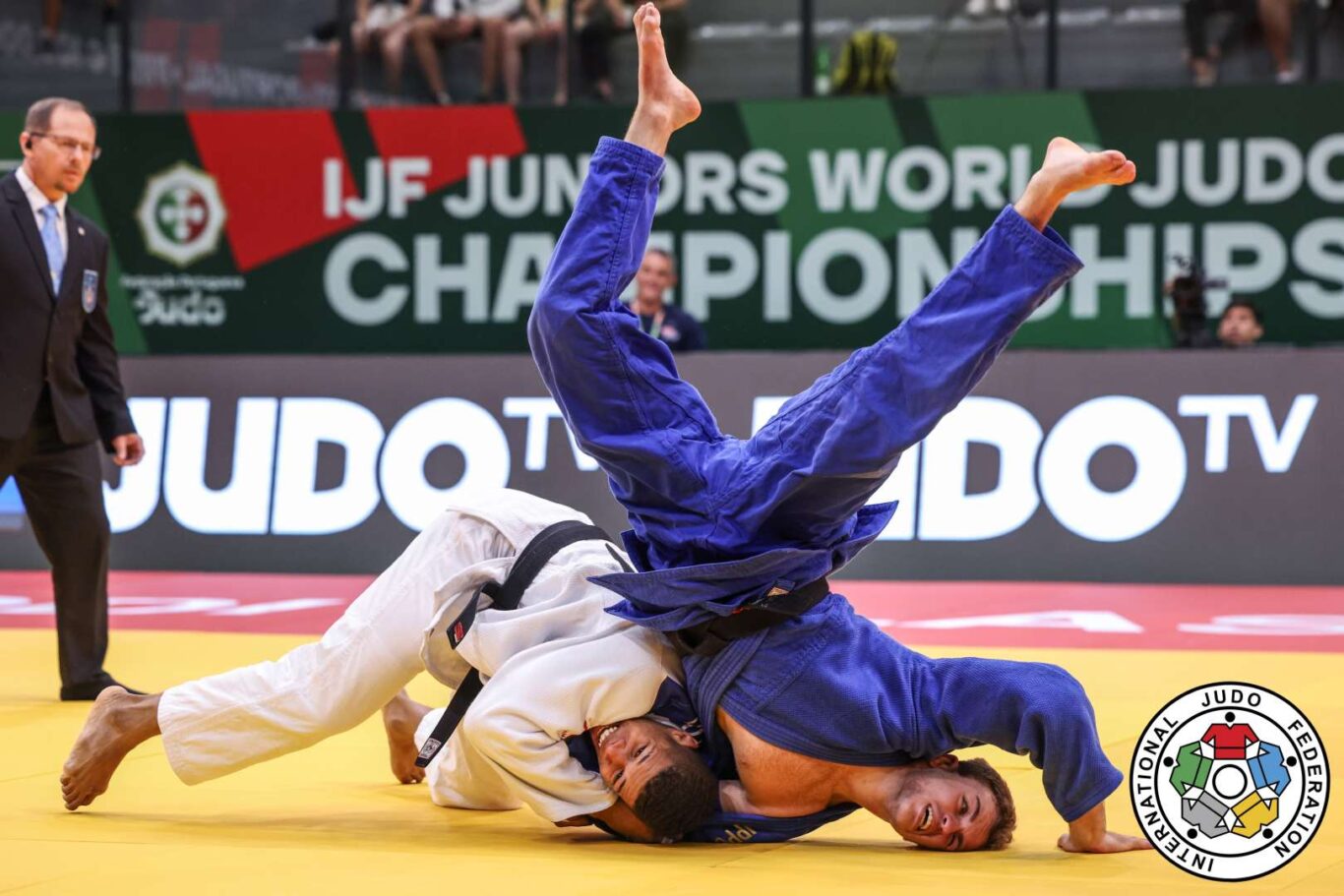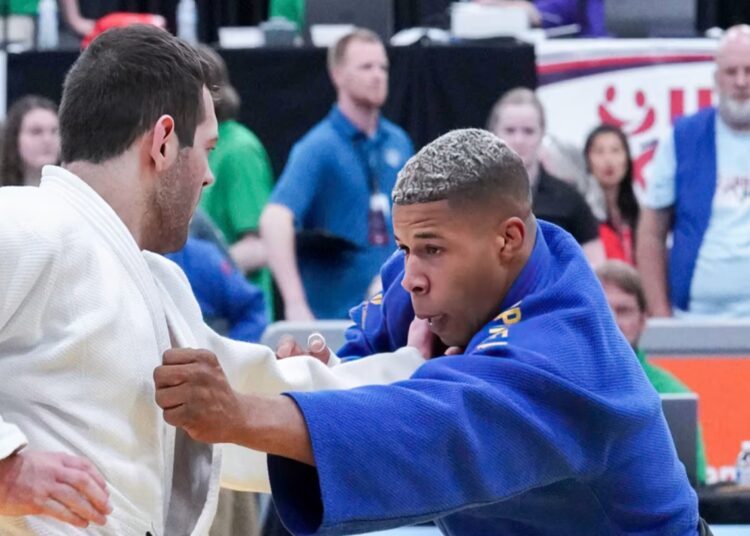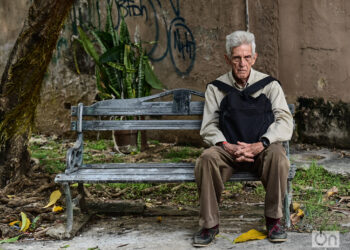Johan Silot landed with many emotions in his native country. He represented the United States at the Varadero Open Judo 2024. After three years, he was returning to Cuba, this time as an official member of the nation that welcomed him. Would he do well in the competition? What would he feel when facing the island’s judokas? Could he get a medal in the 81-kilogram division?
All these questions were going through the mind of the judoka, who started the competition in the Matanzas beach resort on the right foot. From the outset, he fell bye in the first round and was one of two exponents in the 81-kilogram division who did not have to compete so early in the morning.
In the pool C final he defeated Yaddik Kindelán. In the semifinal match, he would have a serious rival, Canadian David Popovici, bronze medalist at the Santiago 2023 Pan American Games. Still, he overcame the difficult obstacle to secure his place in the final.
In the gold medal discussion, he beat Cuban Naysdel Cardoso and won the title in a weight category where Cuba, currently, does not have representatives with great international results. Despite this and as a curious fact, the entire podium of the division at the Varadero Open was made up of athletes from the island: Maikel McKenzie and Rubén Romero took the bronze medals.
Inevitably, the image of Silot at the top of the event ahead of other Cubans made us question whether the judoka could have been the island’s first figure in this weight. But in combat sports, as in life, assumptions are worthless.
Trajectory
The victory at the Varadero Open was his first international title. The 21-year-old from Havana won the bronze medal at the Pan American and Oceania tournament in September 2023, and at the Montreal Open in November of that same year. A few months earlier he had finished in seventh place at the Junior European Cup in Slovgenc Gradec, Slovenia, and at the Junior European Cup in Birmingham, England.
Ver essa foto no Instagram
The race is just beginning for “El Jabao,” a Cuban under the U.S. flag. With a joy that overflowed him, like a kid, he agreed to talk with OnCuba about his short career. Johan only managed to laugh, perhaps still nervous, but he left us his impressions:
When did you start judo?
When I was 7 years old, with coach César, in Marianao. Later I formed part of the EIDE sports school, with professors Yisel, Ilia, Thondike, Santiago, Amaury; they were all my coaches at that stage.
How many years were you practicing judo in Cuba and why did you go to the United States?
I practiced judo in Cuba my entire life until I went to the United States three years ago, claimed by my dad. I went through the legal route. My dad is a U.S. citizen, which led me to acquire my citizenship quickly.
How did you get involved in judo in the United States?
I got there and started training. At first, I couldn’t compete because I didn’t have my papers. Once I got citizenship I started competing in local tournaments. I became a national champion in the youth and senior categories as well, and that’s how I directed my career in my new country.
What does it mean to compete in Cuba?
It means a lot to me. In my career, many people did not trust me. And not only that, the injuries I suffered when I was younger also contributed to me not obtaining better results. This competition was the ideal opportunity to show that yes, I can.
It is very significant to come representing another country. Furthermore, I am doing what I like, which is judo. There is no country when one is on the mat. In the end, we are doing judo, and the best one wins.

What was it like facing the Cubans?
We have quite strong judo. But Cuban judo, in general, has to update and change. However, they are very strong rivals and work hard to achieve good results.
The podium, the medal, the United States anthem…
Many mixed feelings. I’m on the podium with first place, listening to the United States anthem, but at the same time I am Cuban and I will never stop being Cuban. No matter what happens I will always be Cuban. And it is contradictory, because you would like the anthem played to be that of Cuba, but it is that of the United States, which is the country you must represent now. I don’t know how to explain it.
Will you return to the Varadero Open Judo?
Of course. It is a great experience. We have a great time. And the Cuban public is different, they shout, they encourage you, or they are against you. You fight with more pressure here. Over in the United States, people don’t yell at you from the stands. The public is calmer. I will be in Varadero next year. It is an experience I want to repeat.










